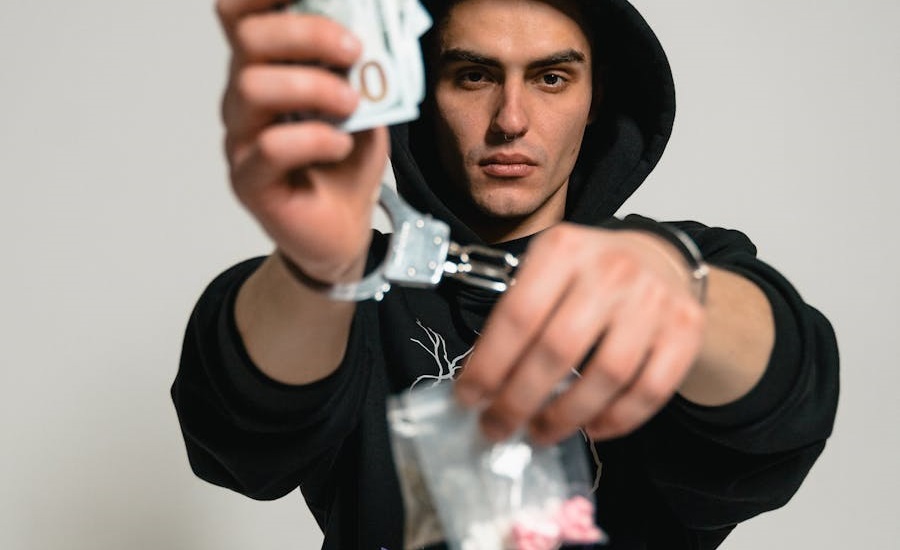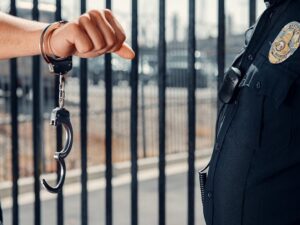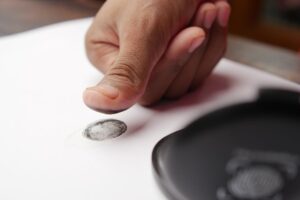Legal guide to drug offences in the UK

Been caught with drugs? Worried about losing your driving licence, or even your children? UK drug laws are brutal and unforgiving. A single mistake can mean prison time, a criminal record that follows you for life, and devastating consequences for your family. Whether it’s drug use/consumption, drug trafficking charges, or navigating drug driving sentencing guidelines, the stakes couldn’t be higher. This guide cuts through the legal jargon to give you straight answers. If you’re facing charges, instructing a specialist drug offence solicitor is essential.

Key Takeaway: What do most people misunderstand about drug offences in the UK?
Read this guide to understand what really counts as a drug crime in the UK.
The ABC classification system: What are controlled substances?
The Misuse of Drugs Act 1971 divides illegal drugs into three classes based on the harm they cause. The classification determines the severity of penalties you’ll face; Class A attracts the harshest sentences, while Class C carries lighter punishment.
Class A substances:
- Heroin: Deadly opiate.
- Cocaine and crack: Both treated identically under law.
- Magic mushrooms: Fresh or prepared, both are Class A.
- Ecstasy (MDMA): Popular at festivals, devastating in court.
- LSD: Even tiny quantities trigger maximum criminal liability.
- Methadone: Class A despite being used in addiction treatment programmes.
Class B substances:
- Ketamine: Prosecutions rising sharply across the UK.
- Cannabis: Still illegal despite widespread misconceptions.
- Amphetamines: Upgraded to Class A if prepared for injection.
- Mephedrone: Former “legal high” now carrying serious penalties.
- Synthetic cannabinoids (Spice): Extremely dangerous and heavily targeted by police.
Class C substances:
- Khat: Plant-based stimulant used in some communities.
- Anabolic steroids: Frequently overlooked by gym users and bodybuilders.
- GHB/GBL: Date-rape drugs with severe sentencing despite lower classification.
- Benzodiazepines without prescription: Including diazepam, temazepam and Xanax.
What’s legal and what’s criminal with drugs?
The line between lawful use and criminal activity is razor-thin. Having a valid prescription protects you, but step outside those boundaries and you’re breaking the law.
Lawful possession and use:
- Named patient only: Sharing your prescription medication with anyone else is illegal supply.
- Carrying prescription evidence: You must prove the medication is legitimately yours if stopped by police.
- Prescribed medications: Controlled drugs prescribed by a registered medical practitioner for your personal use.
Criminal activities:
- Import/Export: Bringing controlled substances into or out of the UK, regardless of quantity.
- Supply: Giving, selling, or sharing drugs with others, including splitting a purchase with friends.
- Possession: Having any controlled substance without lawful authority, even traces in an empty bag.
- Production: Manufacturing or cultivating drugs, from growing cannabis plants to operating meth labs.
- Permitting premises: Allowing your property to be used for drug use/consumption, production or supply.
- Possession with intent to supply: Holding quantities suggesting you plan to distribute, even without evidence of actual sales.
Possession vs Consumption: Why the difference matters
A legal quirk confuses most people: drug use/consumption itself isn’t a criminal offence in the UK, but possession is. Understanding this distinction could save you in court.
The possession offence:
- Physical control: Having drugs on your person, in your bag, car, or home.
- Traces count: Even residue in used bags or pipes constitutes possession.
- Constructive possession: Drugs hidden in your property can still be attributed to you.
- Knowledge required: You must know the substance exists and that it’s a controlled drug.
The consumption reality:
- Not directly illegal: Being high or having drugs in your system isn’t itself a crime.
- No offence for metabolites: Testing positive for drug metabolites in your blood or urine isn’t prosecutable.
- The catch: You had to possess drugs to consume them, so prosecution targets the possession.
- Circumstantial evidence: Visible intoxication or admission of use can prove you possessed drugs earlier.
Why this matters in practice:
- Police testing: Officers can’t arrest you simply for appearing intoxicated by drugs.
- Workplace testing: Positive tests may cost your job but aren’t criminal evidence alone.
- Driving exception: Drug driving laws create a separate offence for having specified drugs above limits while driving.
Drug trafficking and supply charges
Drug trafficking and supply offences carry devastating sentences; we’re talking years, even decades, in prison. The Crown Prosecution Service doesn’t need to prove you sold drugs or made money; simply sharing a joint with a friend counts as supply.
What constitutes supply:
- Selling drugs: The obvious one, whether for profit or at cost.
- Giving drugs away: Free distribution to friends is still illegal supply.
- Holding for others: Storing drugs for someone else, even without personal use.
- Sharing purchases: Splitting a bag you bought together makes both parties guilty of supply.
Drug trafficking indicators:
- Purity levels: Uncut drugs indicate you’re higher up the supply chain.
- Large quantities: Amounts beyond personal use suggest intent to supply.
- Packaging materials: Scales, bags, cling film, or cutting agents found with drugs.
- Multiple deals: Cash, tick lists, or mobile phone messages showing transactions.
The “intent to supply” charge:
- Financial investigation: Unexplained wealth or cash suggests dealing activity.
- Text messages: Screenshots of drug-related conversations are powerful evidence.
- No actual supply needed: Police can charge you based on quantity and circumstances alone.
- Burden shifts: Once prosecution proves possession, you must explain why quantities are for personal use.
Penalties, sentences and fines: What you’re facing
The punishment for drug offences ranges from a police warning to life imprisonment. Your sentence depends on the drug class, offence type, your role, and criminal history.
Drug use/consumption penalties:
- Cannabis warnings: First-time small amounts may get a street warning with no record.
- Penalty notices: £90 fixed penalty avoided if paid within 21 days.
- Conditional discharge: Court releases you without conviction if you stay clean.
- Prosecution: Repeat offenders face court proceedings and criminal records.
Drug driving sentencing guidelines and roadside testing:
- Roadside saliva tests: Police detect cannabis and cocaine instantly.
- Zero tolerance: Any illegal drugs above specified thresholds means conviction.
- 12-month ban minimum: Automatic driving disqualification.
- 6 months prison: Plus unlimited fine for first offence.
- Death by drug driving: 14 years maximum imprisonment.
Prison sentences for possession:
What is the maximum prison sentence for possession of a Class A drug? 7 years and unlimited fine.
What is the maximum prison sentence for possession of a Class B drug? 5 years and unlimited fine.
What is the maximum prison sentence for possession of a Class C drug? 2 years and unlimited fine.
Supply and trafficking maximums:
- Class A: Life imprisonment.
- Class B: 14 years.
- Class C: 14 years.
What increases your sentence (aggravating factors):
- Supplying near schools: Adds years automatically.
- Using children as couriers: Massively increases sentence.
- Violence or weapons: Treated as serious organised crime.
- Previous convictions: Each offence brings harsher punishment.
- Large-scale operations: Industrial quantities mean maximum terms.
What reduces your sentence (mitigating factors):
- First offence: Courts show more leniency.
- Early guilty plea: One-third off your sentence.
- Low-level courier: Street dealers get less than organisers.
- Addiction or coercion: May lead to treatment orders instead of custody.
- Genuine rehabilitation efforts: Drug treatment programmes demonstrate commitment.
Financial penalties:
- Court fines: Based on offence severity and your income.
- Third-party seizures: Family members’ property taken if proven drug-funded.
- Default imprisonment: Refusing to pay confiscation means extra prison time.
- Confiscation orders: Proceeds of Crime Act seizes assets from drug trafficking.
- Assumed criminal lifestyle: Courts presume all your assets come from dealing.
Statistics: The scale of drug crime in the UK
Drug offences are among the most prosecuted crimes in Britain. The numbers paint a stark picture:
- 85% conviction rate: Most drug cases end in guilty verdicts or pleas.
- 150,000+ drug offences: Recorded annually across England and Wales.
- 12,000+ prisoners: Currently serving sentences for drug-related offences.
- 4,000+ deaths annually: Majority involve opioids like heroin and fentanyl.
- Cannabis dominates: Over 70% of possession charges despite being Class B.
- Drug driving surge: Prosecutions tripled since roadside testing began in 2015.
Do I need a solicitor for drug offences?
If you’re facing drug charges, possession, supply, drug trafficking, or drug driving, instructing a specialist criminal defence solicitor is essential.
- Police interviews destroy cases: One wrong word turns possession into intent to supply. Solicitors stop you incriminating yourself and challenge unlawful searches that get evidence excluded.
- Sentencing reductions require expertise: Specialists negotiate charge reductions, secure early guilty plea discounts (one-third off sentences), and present mitigation that actually works in court.
- Technical defences collapse prosecutions: Illegal searches, evidence tampering, unlawful stops, and forensic errors provide grounds for dismissal. Only experienced solicitors spot these defences.
When legal advice is critical:
- Previous convictions: You need aggressive mitigation to avoid custody.
- Supply or trafficking charges: Prison is near-certain without expert defence.
- Professional licenses at risk: Doctors, teachers, drivers need specialist advice.
- Arrested or investigated: Get representation at the police station immediately.
FAQs
- Can a mother or father lose custody for drug use UK? Drug use/consumption doesn’t automatically remove custody, but social services will investigate. If drugs affect your parenting or create unsafe environments, you’ll lose custody. Criminal convictions for supply or drug trafficking almost guarantee custody loss. Rehab and negative tests improve your chances of keeping your children.
- What happens if I’m caught with drugs for the first time? Small amounts may get a warning or £90 penalty notice. Class A drugs or larger quantities mean arrest and court. First-timers typically receive conditional discharge or community orders, but you’ll still get a criminal record affecting jobs and travel.
Drug offences in the UK carry life-altering consequences, from prison sentences to losing your children. Understanding the law is your first defence, but facing charges alone is reckless. The stakes are too high to gamble with your future without expert legal representation.
Facing drug charges?
Qredible’s network of specialist criminal defence solicitors has defended thousands of drug cases successfully.
KEY TAKEAWAYS:
- UK drug offences are classified A to C, with Class A substances carrying up to life imprisonment for supply and 7 years for possession, while drug trafficking charges don’t require proof of sales.
- Consumption isn’t illegal, but possession is, and sharing drugs with friends legally counts as supply, triggering severe penalties including custody and criminal records.
- Drug driving, custody loss for parents, and mandatory sentences make specialist solicitor representation essential to identify defences, negotiate reductions, and protect your future.
Articles Sources
- cps.gov.uk - https://www.cps.gov.uk/legal-guidance/drug-offences
- sentencingcouncil.org.uk - https://sentencingcouncil.org.uk/resources/common-offences/drug-offences/
- gov.uk - https://www.gov.uk/penalties-drug-possession-dealing
- sentencingcouncil.org.uk - https://sentencingcouncil.org.uk/media/edmbwuhe/drug_offences_definitive_guideline_final_web1.pdf
Do you need a solicitor?
Find a solicitor on Qredible in just a few easy steps
















